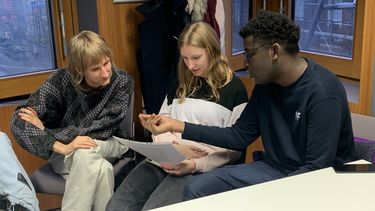Modern Languages and Cultures masters courses
Study with us, take on a new challenge and work with leading academic experts in our vibrant scholarly community.

Off
We are a ZOO Academy Partner for MA Translation Studies, and have been granted free access to the Phrase Academic Edition, an academic programme designed for universities with translation courses.
Our curriculum includes a practice of Wordfast translation tools, courtesy of Wordfast LLC and Yves Champollion.

Masters study discovery afternoon
See where a Sheffield masters could take you with our on-campus event. Get expert advice, take a campus tour and chat to current students.
